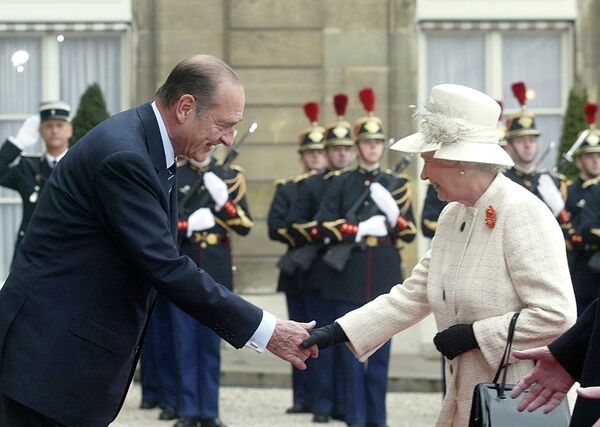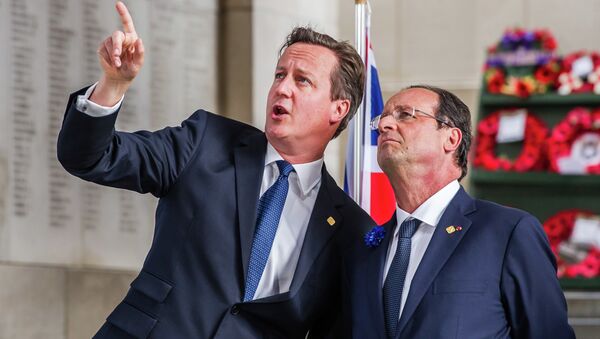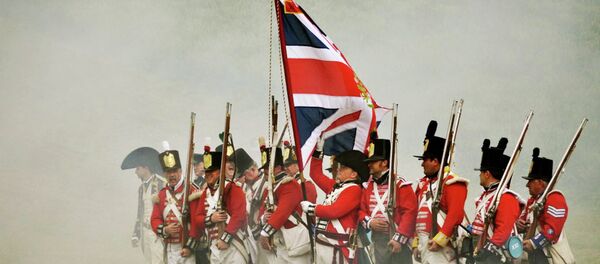Cameron is meeting French President Francois Hollande Tuesday at his country residence, Chequers, west of London. Although the agenda will be dominated by the refugee crisis and Syria, Cameron will be keen to work on the historic links between Paris and London to shore up support for changes to the EU.
The British prime minister was forced to promise and In/Out referendum on the UK's membership of the European Union following an upsurge in anti-EU sentiment within his own party and the meteoric rise in support for anti-EU party UKIP. The referendum has to take place before the end of 2017, but may even happen as early as next year.
The special ties between the two nations date back centuries, with Anglo-Norman, and then French, being the language of the royalty and the courts in Britain until the 14 century.
The Entente Cordiale dates back to the beginning of the 20 century, prior to which Britain had adopted a position of "splendid isolation" from Europe and France saw Germany as its major threat. Both countries across the English Channel looked to each other for support.

In 1904 the first of a series of agreements was signed between the two countries, the first confirming British influence in Egypt in return for recognizing French influence in Morocco. In another, the French gave up their rights in Newfoundland in return for Britain allowing French dominance in what is now modern-day Guinea.
Russia became intertwined with the signing, in 1907, of the triple entente between Moscow, London and Paris who lined up against the perceived threat from Germany, Austria-Hungary and the Kingdom of Italy. This alliance remained through the First World War, with Britain and France enjoying strong co-operation.
Anger and Concord
In the Second World War, after French capitulation and the establishment of a collaborationist government, the French State, which General de Gaulle did not recognize, he took up residence in London and became leader of the Free French.
However, de Gaulle had a tricky relationship with British wartime Prime Minister Winston Churchill, saying:
"When I am right, I get angry. Churchill gets angry when he is wrong. We are angry at each other much of the time."
After the war the Suez crisis of 1956, Anglo-French relations were put under strain after Britain negotiated a ceasefire without consulting Paris.
The most striking historical moment was when, in 1963, de Gaulle vetoed the British application to join the precursor to the European Union, the European Economic Community declaring: "Angleterre, ce n'est plus grand chose!" (England is not much anymore).
He reiterated this four years later and the UK decided to press for membership by stealth and to wait until de Gaulle was gone.
However, the relationship grew close, once again, with the development of Concorde — the Mach 2.0 supersonic jet airliner produced by the French Aérospatiale and the British Aircraft Corporation, which began a series of civil and military co-productions between Paris and London. This continues to this day with the French company Thales heavily involved with the construction of the UK's two new Queen Elizabeth class aircraft carriers.
As David Cameron meets François Hollande Tuesday to lay out his options over Britain's membership of the European Union ahead of a vital referendum, much will be made behind-the-scenes of the Anglo-French love-hate relationship. Will the Entente Cordiale (or the concord between Paris and London) prevail?






